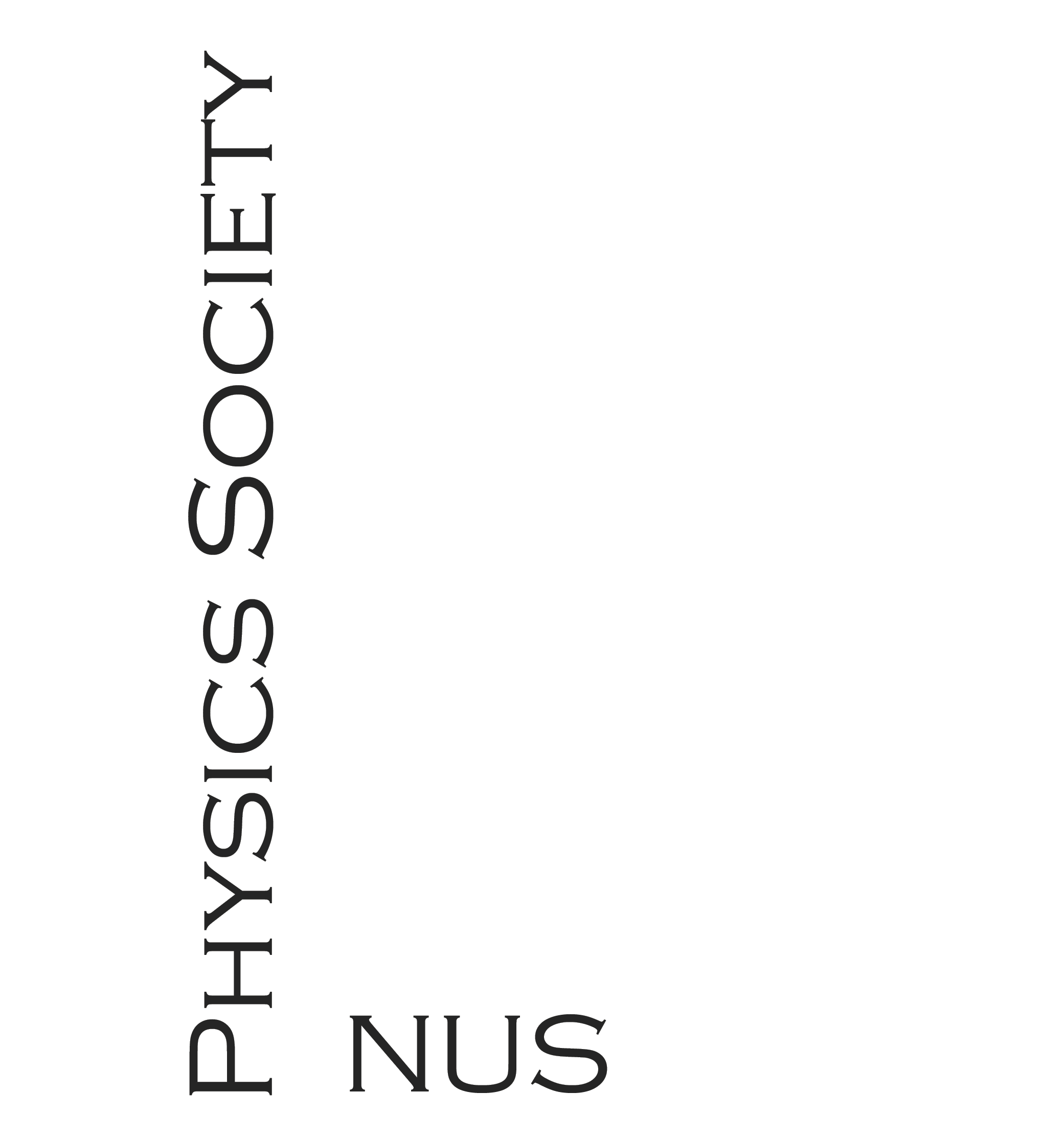Module Review
Physoc has been collecting module reviews from fellow physics undergraduates since AY2012-13. It is incomplete and updates need to be done every semester. If your kind soul wish to contribute for this project, submit your review(s) here.
Level 1000 Modules:
PC1141 Physics I
PC1142 Physics II
PC1143 Physics III
PC1144 Physics IV
Level 2000 Modules:
PC2130 Quantum Mechanics I(Semester I)
PC2130 Quantum Mechanics I(Semester II)
PC2131 Electricity and Magnetism (Semester I)
PC2131 Electricity and Magnetism (Semester II)
PC2132 Classical Mechanics
PC2230 Thermodynamics and Statistical Mechanics
PC2193 Experimental Physics I(Semester I)
PC2193 Experimental Physics I(Semester II)
| PC2131 Electricity and Magnetism (Semester I) | |
|---|---|
| Class size | 60 |
| Textbook | Introduction to Electrodynamics, Griffiths, Pearson |
| Lecturer | Assistant Professor Ariando |
| Contents | |
| Assestment | 10% for each midterm test, 10% for tutorials and 10% for quiz, 60%for final exams with formula sheet given. |
| Comment(s) | 1. A more complex version of PC1143 |
| PC2132 Classical Mechanics | |
|---|---|
| Class size | 100 |
| Textbook | |
| Lecturer | Professor Berthold-Georg Englert |
| Contents | 1. Kinetics 2. Dynamics 3. Conservative Forces 4. Pair Forces 5. Two-Body Systems 6. Gravitating Mass Distribution 7. Variational Problem 8. Principle of Stationary Action 9. Small- Amplitude Oscillations 10.From Lagrange to Hamilton 11. Rigid bodies 12 Earth-bound laboratories(not testing) |
| Assestment | 30% for two midterm tests, 20% for tutorials 50%for final exams |
| Comment(s) | General Review: Professor Englert knows everything in physics, well almost,. The classes start at 12:00pm sharp and end at 13:35±2 minutes. No break during lectures. He will derive every equations (almost) which is hardly found in other books. It is better to copy down what he said as the lecture notes do not show every single step in deriving formulas. Suggestions: Focus more on how to modify the derived formulas based on questions, i.e. what assumption(s) made, initial conditions, etc. Do the tutorial questions before class, copy down the solution discussed as no solution will be provided afterward. |
